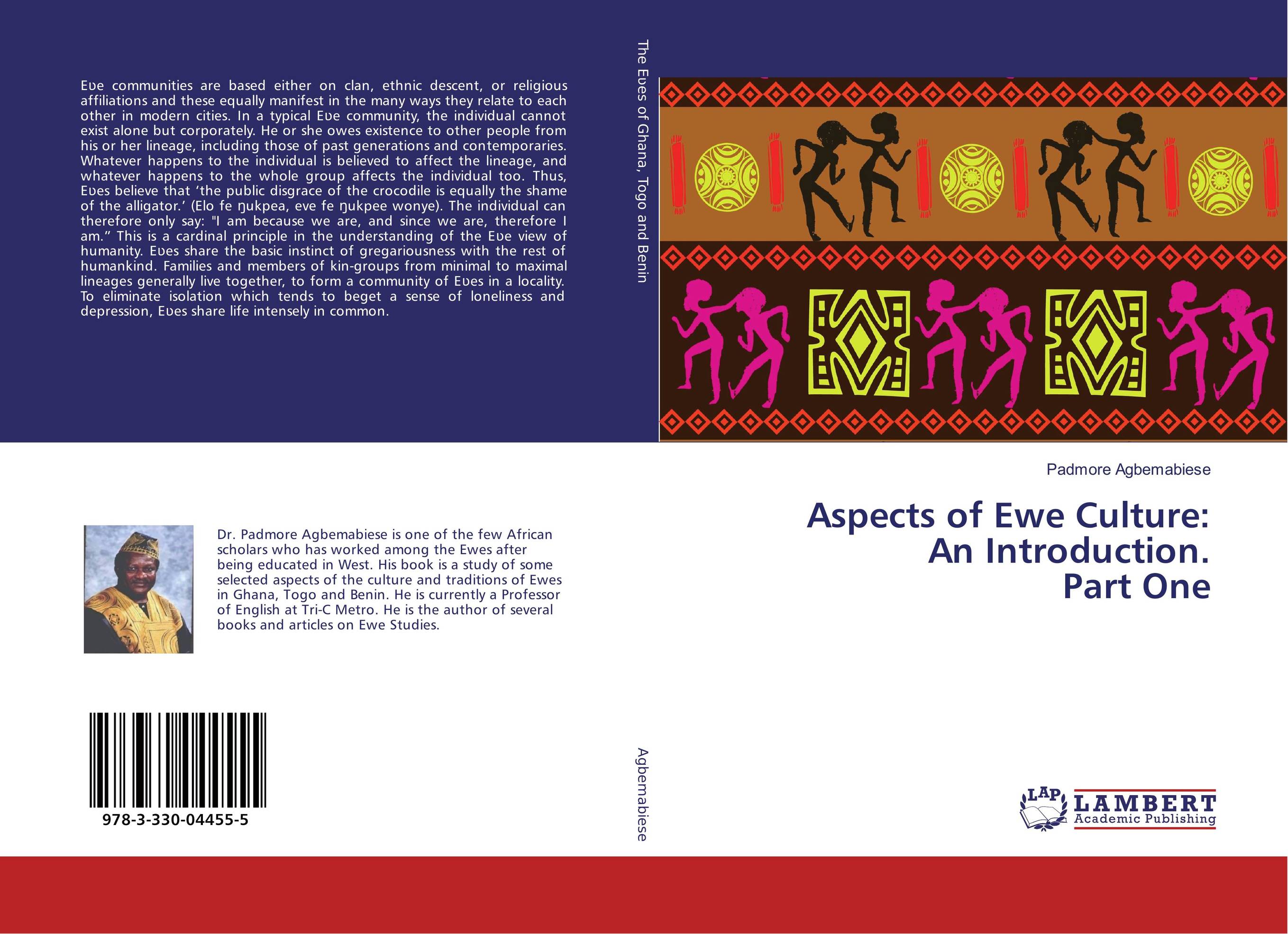| Поиск по каталогу |
|
(строгое соответствие)
|
- Профессиональная
- Научно-популярная
- Художественная
- Публицистика
- Детская
- Искусство
- Хобби, семья, дом
- Спорт
- Путеводители
- Блокноты, тетради, открытки
Aspects of Ewe Culture: An Introduction. Part One.

В наличии
| Местонахождение: Алматы | Состояние экземпляра: новый |

Бумажная
версия
версия
Автор: PADMORE AGBEMABIESE
ISBN: 9783330044555
Год издания: 2017
Формат книги: 60×90/16 (145×215 мм)
Количество страниц: 120
Издательство: LAP LAMBERT Academic Publishing
Цена: 20499 тг
Положить в корзину
| Способы доставки в город Алматы * комплектация (срок до отгрузки) не более 2 рабочих дней |
| Самовывоз из города Алматы (пункты самовывоза партнёра CDEK) |
| Курьерская доставка CDEK из города Москва |
| Доставка Почтой России из города Москва |
Аннотация: E?e communities are based either on clan, ethnic descent, or religious affiliations and these equally manifest in the many ways they relate to each other in modern cities. In a typical E?e community, the individual cannot exist alone but corporately. He or she owes existence to other people from his or her lineage, including those of past generations and contemporaries. Whatever happens to the individual is believed to affect the lineage, and whatever happens to the whole group affects the individual too. Thus, E?es believe that ‘the public disgrace of the crocodile is equally the shame of the alligator.’ (Elo fe ?ukpea, eve fe ?ukpee wonye). The individual can therefore only say: "I am because we are, and since we are, therefore I am.” This is a cardinal principle in the understanding of the E?e view of humanity. E?es share the basic instinct of gregariousness with the rest of humankind. Families and members of kin-groups from minimal to maximal lineages generally live together, to form a community of E?es in a locality. To eliminate isolation which tends to beget a sense of loneliness and depression, E?es share life intensely in common.
Ключевые слова: Benin, cultural studies, culture, Ghana, Social Studies, Togo, Tradition, Ewes, Anlo Ewes, Africa, American, Padmore Enyonam Agbemabiese, Kofi Anyidoho



